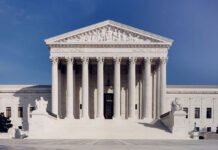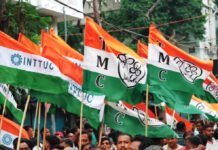Supreme Court: Kejriwal Granted Interim Bail in ED Case; Large Bench to Hear Arrest Challenge
Delhi CM Arvind Kejriwal Receives Interim Bail from Supreme Court
Delhi Chief Minister Arvind Kejriwal has been granted interim bail by the Supreme Court in a case involving the Enforcement Directorate (ED). Despite this relief, Kejriwal remains in custody under the Central Bureau of Investigation (CBI). This decision follows the Supreme Court’s reservation of judgment on Kejriwal’s petition on May 17, which challenges his arrest by the ED in connection with a money laundering case related to the alleged Delhi excise policy scam.
Supreme Court Proceedings: Key Highlights
In a pivotal hearing held on Friday, the Supreme Court examined Kejriwal’s plea challenging his arrest by the ED. The court has referred this petition to a larger bench. The Supreme Court’s interim bail order emphasized that they are currently considering the provisions of Section 19 and Section 45 of the Prevention of Money Laundering Act (PMLA). Justice Khanna clarified that Section 19 pertains to the subjective opinion of the investigating officer, while Section 45 involves judicial oversight. The court stressed that the necessity and proportionality of arrests are critical factors and have been referred to the larger bench for detailed scrutiny.
Arrest Necessity and Proportionality: Supreme Court’s Stance
Justice Khanna remarked that the necessity of an arrest and the principles of proportionality are fundamental. The court observed that mere interrogation does not justify arrest and instructed that Kejriwal should be released on interim bail. Acknowledging Kejriwal’s position as an elected leader, the court noted the complexity of directing an elected official to step down from their duties.
Election Funding and Constitutional Bench Inquiry
In addition to the bail deliberations, the court also raised questions about election funding, a subject recently scrutinized by the constitutional bench, which invalidated the electoral bonds scheme. The court linked this to the broader issue of corruption and electoral funding, underlining the need for thorough investigation.
Backdrop of the Case: A Timeline of Events
The Supreme Court had previously sought a response from the ED on April 15 regarding Kejriwal’s petition challenging his arrest. Kejriwal, the convenor of the Aam Aadmi Party (AAP), had appealed to the Supreme Court following the Delhi High Court’s decision on April 9, which upheld his arrest as lawful. The High Court ruled that there was no illegality in his arrest and that ED had no alternative after Kejriwal repeatedly refused to cooperate with the investigation.
High Court’s Judgment on Kejriwal’s Arrest
On April 9, the Delhi High Court dismissed Kejriwal’s petition challenging his arrest, affirming the legality of the ED’s actions. The court stated that Kejriwal’s repeated non-cooperation necessitated his arrest. This ruling was pivotal, leading to the ongoing legal battle in the Supreme Court.
Detailed Analysis: Alleged Excise Policy Scam and Money Laundering Case
Arvind Kejriwal’s Arrest and Legal Battle
Kejriwal was arrested by the ED on March 21 in connection with a money laundering case related to the alleged Delhi excise policy scam. A lower court had initially granted him bail on June 20, against a personal bond of INR 1 lakh. However, the ED challenged this decision in the Delhi High Court the very next day, arguing that the lower court’s bail order was unilateral and erroneous. Subsequently, the CBI also arrested Kejriwal on June 26 in connection with corruption allegations linked to the same excise policy.
Excise Policy Scam: Allegations and Investigations
The case revolves around allegations that the Delhi government’s 2021-22 excise policy favored certain liquor traders who had purportedly paid bribes for licenses. The policy, which was later scrapped, had come under scrutiny after Lieutenant Governor V.K. Saxena recommended a CBI probe based on a report by the Delhi Chief Secretary. This report indicated violations of laws and regulations under the policy, prompting both CBI and ED investigations.
Kejriwal’s Defense and Political Implications
Kejriwal has consistently denied the allegations, asserting that the charges are politically motivated. The AAP has alleged that the BJP-led central government is using investigative agencies to target political opponents. The case has significant political ramifications, as Kejriwal is a prominent leader of an influential opposition party, and his arrest and subsequent legal battles are seen as part of a broader political tussle.
Supreme Court’s Interim Order: Legal Interpretations and Implications
The Supreme Court’s decision to grant interim bail to Kejriwal while referring the larger question of arrest procedures under the PMLA to a larger bench is a crucial development. This move indicates the court’s intent to scrutinize and possibly redefine the legal framework governing arrests under money laundering laws.
Implications for Future Arrests under PMLA
The court’s emphasis on the necessity and proportionality of arrests could lead to significant changes in how investigative agencies like the ED and CBI approach arrests in money laundering and corruption cases. If the larger bench rules in favor of stricter judicial oversight, it could provide more protection to individuals against arbitrary arrests, thereby balancing the powers of investigative agencies with the rights of the accused.
Conclusion: Awaiting the Larger Bench’s Decision
As Kejriwal receives interim bail, the legal community and political observers keenly await the decision of the larger bench on the critical issues referred by the Supreme Court. This ruling could have far-reaching implications for the legal landscape surrounding money laundering investigations and the accountability of investigative agencies.
The Supreme Court’s interim order provides a temporary respite to Kejriwal but leaves several crucial legal questions unanswered. The outcome of the larger bench’s deliberations will be pivotal in shaping the future of legal proceedings in high-profile corruption and money laundering cases in India.














